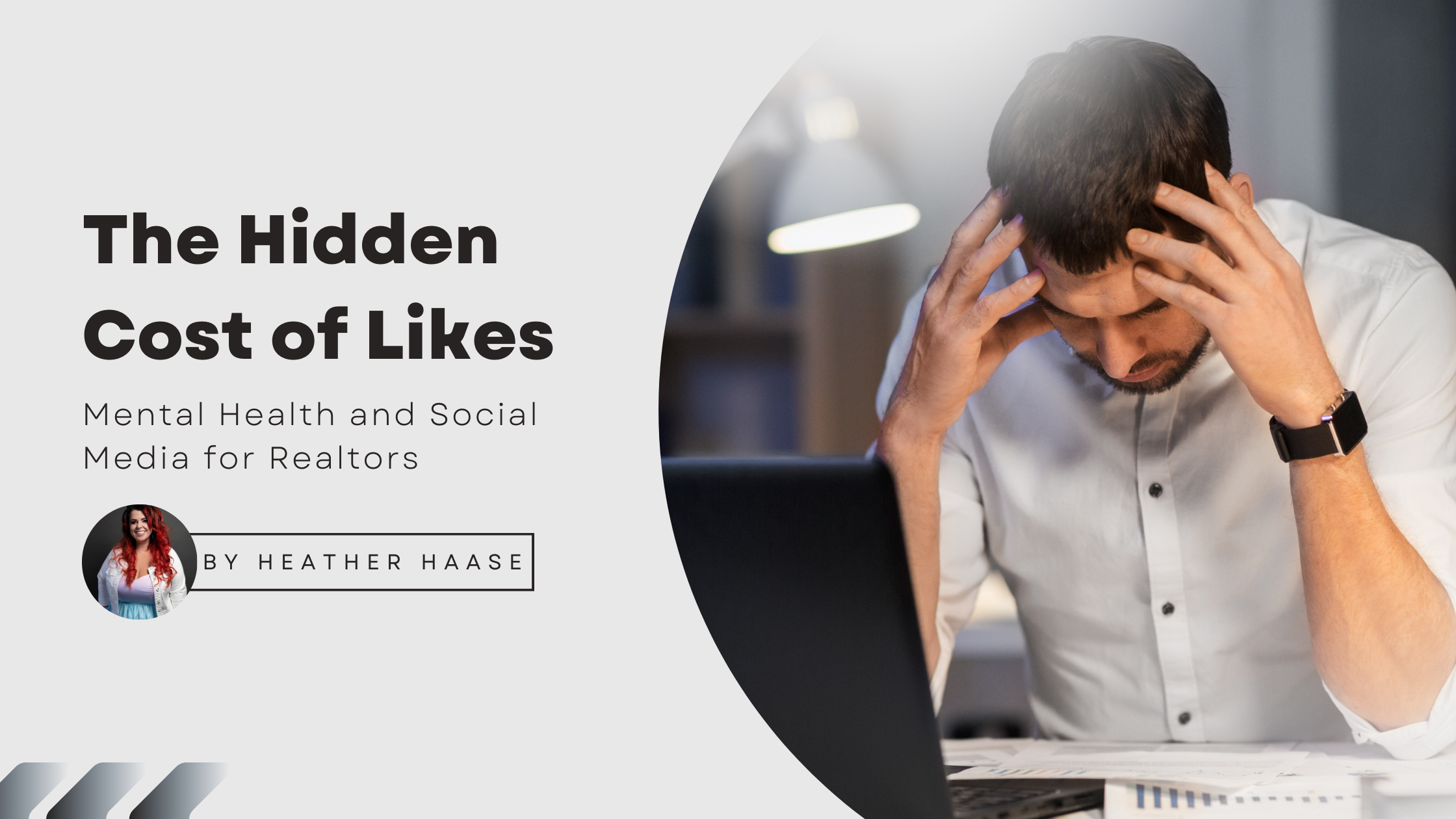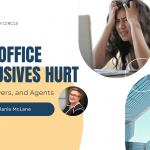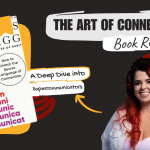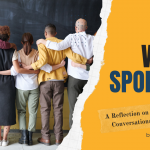*Trigger Warning Ahead: Themes of Mental Health Problems are Heavy in this article*
Social media is a powerful tool that can catapult careers, generate leads, and build personal brands. However, beneath the surface of perfectly curated posts and engaging content lies a hidden struggle—one that many REALTORS (and small business owners) face in silence. The pressure to stay connected, always be “on,” and keep up with the demands of social media can take a significant toll on mental health. This is a story of recognizing that struggle, finding balance, and ultimately thriving in a demanding industry.
The Power and the Pressure of Social Media in Real Estate
It’s no secret that social media has revolutionized the real estate industry. Platforms like Instagram, Facebook, TikTok, YouTube and LinkedIn have become essential tools for REALTORS to showcase properties, connect with clients, and build their personal brands. According to the National Association of Realtors, 77% of agents use social media for real estate, with nearly half reporting that it brings them the highest quality leads.
But with this power comes immense pressure. The expectation to constantly post, engage, and grow your online presence can be overwhelming. It’s easy to fall into the trap of comparing your success to others, measuring your worth by the number of likes, followers, or comments you receive. What often gets lost in the digital hustle is the toll it takes on your mental health.
The Hidden Costs: Anxiety, Burnout, and Beyond
For many,, the pressure to maintain a strong social media presence leads to burnout, anxiety, and even depression. The need to be available 24/7, to respond immediately to inquiries, and to project a flawless image can create a cycle of stress that feels impossible to escape. A 2017 study by the Substance Abuse and Mental Health Services Administration (SAMHSA) found that those working in real estate, rental, and leasing industries had higher-than-average rates of substance use disorders. This is often attributed to the high-stress environment and the social nature of the job, which can involve frequent networking events where alcohol is present. A 2018 report by the CDC found that individuals in real estate and related industries had a higher suicide rate compared to the national average. While the data is not specific to realtors, it underscores the mental health risks associated with high-pressure, commission-based jobs.
A study by the American Psychological Association found that individuals who spend more than three hours a day on social media are significantly more likely to experience anxiety and depression. For REALTORS, whose livelihoods often depend on their online presence, this statistic hits close to home. The constant need to engage can lead to feelings of isolation and inadequacy, even as you work to build connections.
Finding Balance: A Path to Mental Well-being
The good news is that balance is possible. Although I often say work-life balance is a myth, it is actually more subjective than anything. It starts with recognizing that your mental health is just as important as your business success. “You can’t pour from an empty cup”. Setting boundaries around your social media use is a crucial first step. Limiting your screen time, scheduling regular digital detoxes, and using tools to manage your online presence can help alleviate some of the pressure. In these times where your feed is politically ablaze, whether it be with real estate forums or people being negative, the snooze or “not interested” button will be your best friend. Remember you control the tone of your feed. What you interact with will always amplify.
Dr. Jane Smith, a psychologist who works with real estate professionals, emphasizes the importance of creating “offline hours” where you can disconnect and recharge. “Your value isn’t determined by your online presence,” she says. “Taking time for yourself, away from the screen, can actually make you more effective when you do engage.”
Additionally, it’s vital to shift your perspective on social media. Instead of focusing on numbers and comparisons, consider how your content can genuinely serve your audience. When you post with purpose, prioritizing meaningful connections over superficial metrics, the experience becomes more fulfilling and less stressful.
I also find it inspiring that the DEI conversation has expanded into mental health and how to make things more accommodating for everyone. With the younger generation choosing not to drink, and sober living becoming increasingly popular, I see more options than ever for the Sober person. Additionally, many brokerages and associations have adopted talking more about mental health and wellness. There are so many here to support you.
A Message of Hope: Thriving in the Digital Age
As REALTORS, we are more than our online personas. We are individuals with passions, challenges, and dreams that extend far beyond our social media feeds. By prioritizing mental health, setting healthy boundaries, and approaching social media with intention, we can harness its power without falling prey to its pitfalls.
This journey isn’t about giving up social media—it’s about using it in a way that supports your well-being while still achieving your professional goals. Remember, you are not alone in this struggle. Many in the industry are facing the same challenges, and together, we can create a culture that values mental health as much as it does success.
So, the next time you feel the weight of social media bearing down on you, take a moment to breathe, step back, and remember: your worth isn’t defined by your online presence. By caring for your mental health, you not only become a better realtor but also a happier, more fulfilled person. And that’s a success worth sharing.
Getting Support
I wanted to provide some resources for getting support. Remember there is never any shame in asking for help. I have even used social media to find my mental health resources. If it wasn’t for a stranger on TikTok telling me about Open Path Collective, a non profit that provides affordable therapy, I may not be in the state I am today.
National Suicide Prevention Lifeline:
- Phone: 988 (available 24/7)
- Website: 988lifeline.org
National Alliance on Mental Illness (NAMI) Helpline:
- Phone: 1-800-950-NAMI (6264) or text “HELPLINE” to 62640 (available Monday to Friday, 10 AM – 10 PM ET)
- Website: nami.org
Substance Abuse and Mental Health Services Administration (SAMHSA) National Helpline:
- Phone: 1-800-662-HELP (4357) (available 24/7)
- Website: samhsa.gov








Leave a Reply